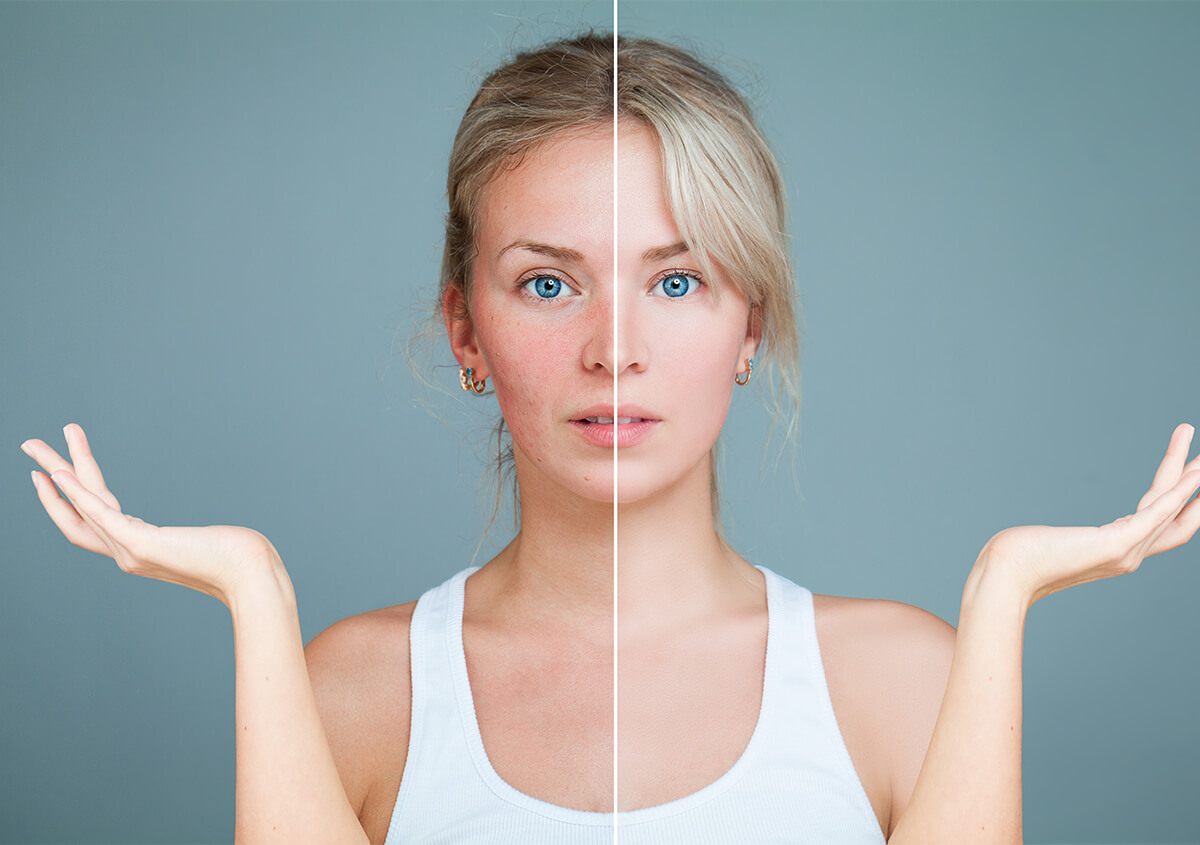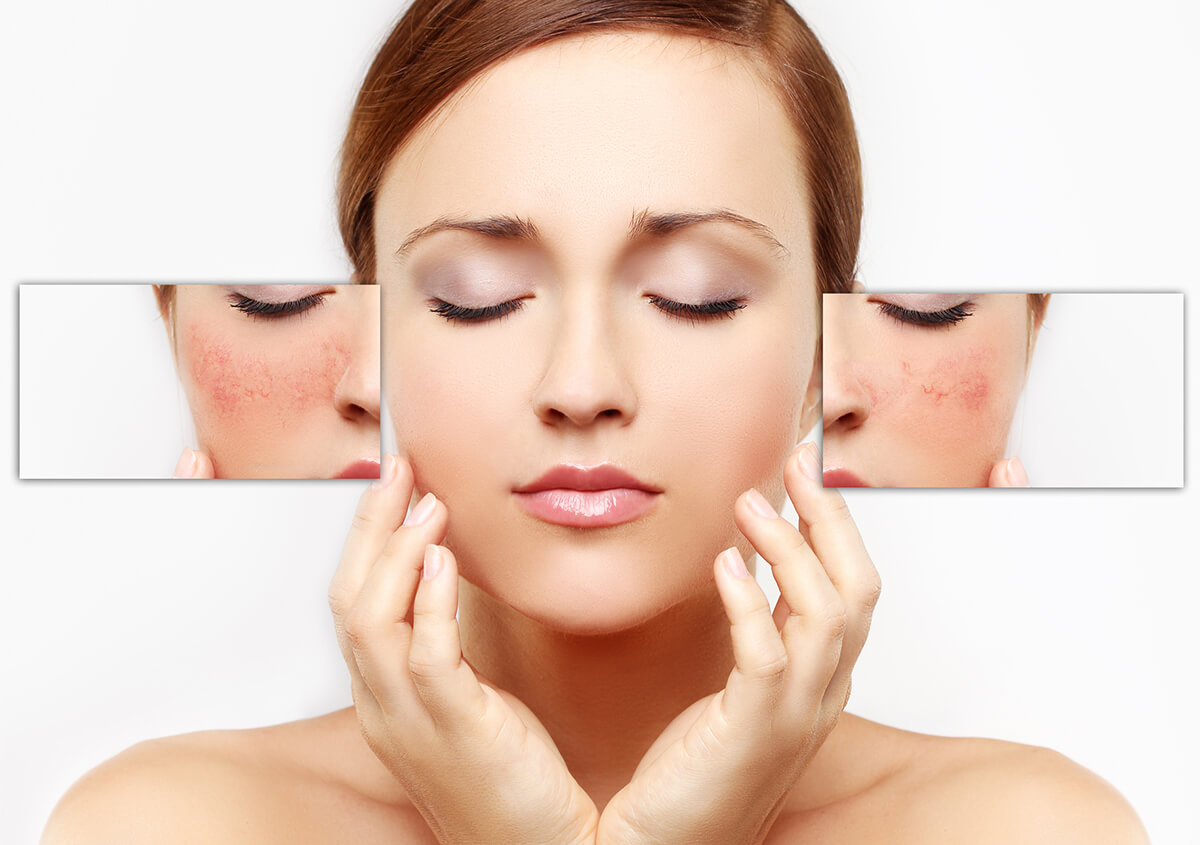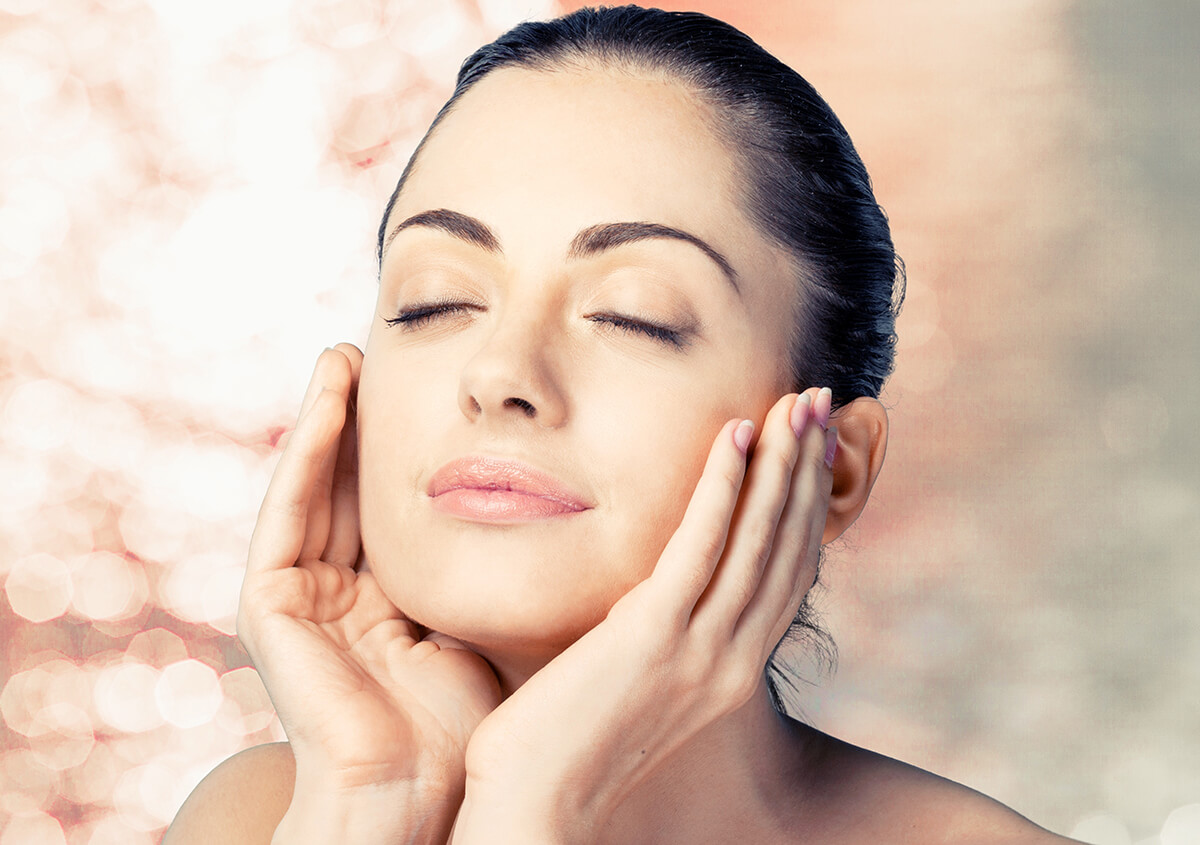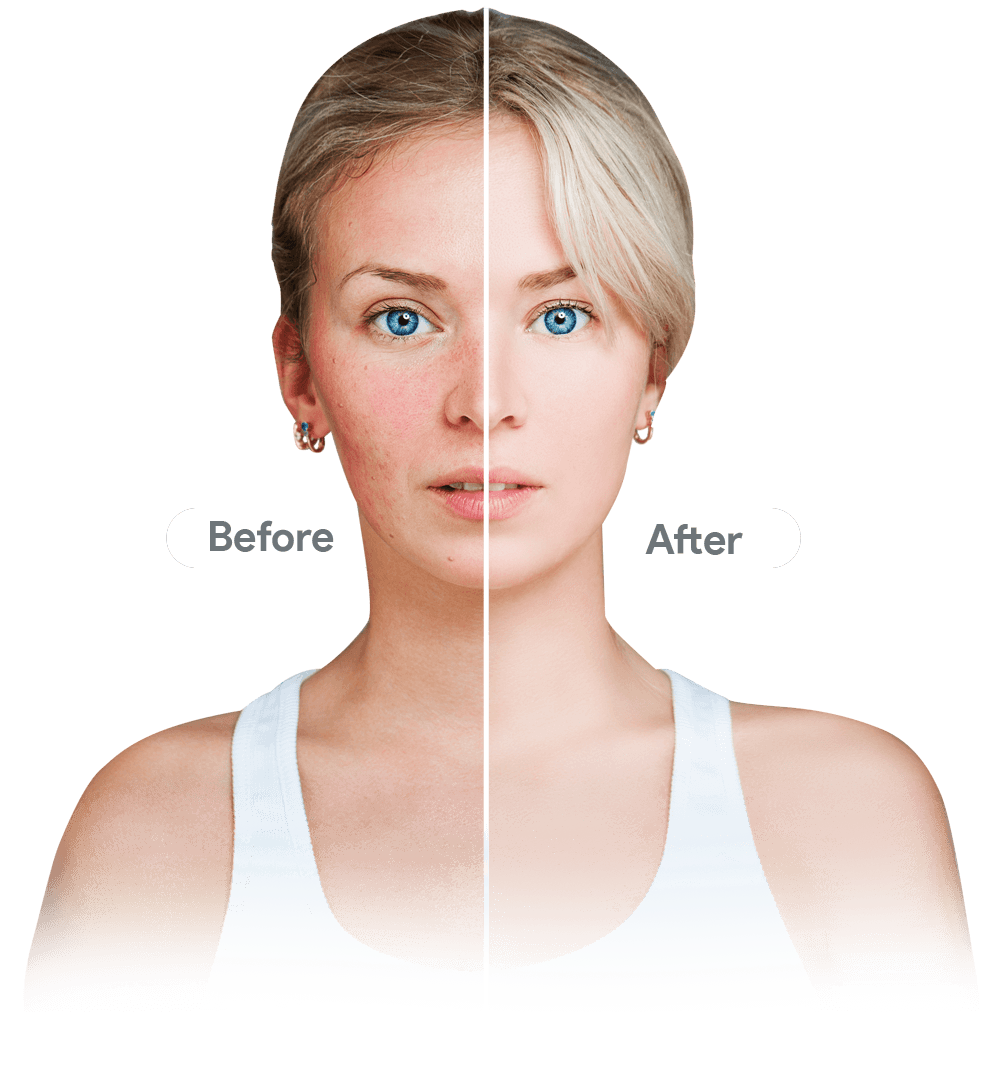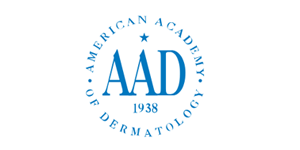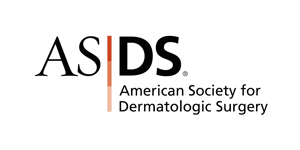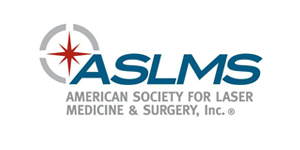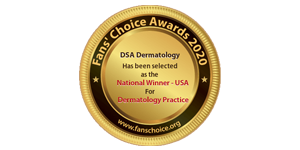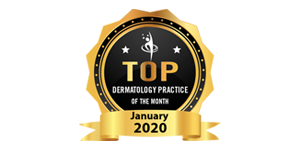Rosacea is a common skin condition, sometimes mistakenly called adult acne. Although it may be similar in appearance, rosacea is not a form of acne. It usually develops gradually, beginning with a tendency to blush or flush easily. Over time, redness can spread from the cheeks and nose to other areas of the face, and even the neck and back.
Causes
The exact cause of rosacea is not fully understood. However, many risk factors have been identified:
- Age – rosacea is most common in adults between the ages of 30 and 50.
- Skin tone – Light-skinned individuals, particularly those with blond hair and blue eyes, have a greater risk.
- Genetics – People with a family history of rosacea, as well as those of Scandinavian or Celtic heritage are more susceptible.
- Acne – Although the conditions are different, individuals with a history of severe acne are more likely to develop rosacea.
Types of rosacea
There are four classifications of rosacea:
Ocular rosacea focuses around the eyes, which become irritated and red. It can cause swelling of the eyelids, and may look like a stye.
Phymatous rosacea causes thick, bumpy skin especially around the nose. Pores may become visible, and skin may be oily.
Papulopustular rosacea, the variety most often mistaken for acne, causes swelling, redness, and skin breakouts.
Erythematotelangiectatic rosacea causes flushing, facial redness, and small, visible vessels. The skin may tend to be sensitive, burn, or sting.
Diagnosis and treatment
It is advisable to see a qualified skin specialist for accurate diagnosis and the latest treatment options. Self-diagnosis can lead to frustration, or even aggravation of the condition. Many people attempt to treat rosacea with over-the-counter acne medication, due to the similarities in appearance between the two conditions. However, acne medication can make rosacea symptoms worse.
If you believe that you have rosacea, or you have “acne” that does not respond to medication, come see Dr. Achtman or Dr. McConnell. They will begin with a thorough clinical evaluation, to diagnose rosacea or any other dermatologic condition you may have, accurately. They will then devise a customized treatment plan, tailored to your unique skin. It may include laser therapy, medication, dermabrasion, or other procedures.
You don’t have to live with the embarrassment and discomfort of rosacea – we are here to help. Call DSA Dermatology at (972) 362-9567 and schedule an appointment today.
Rosacea FAQs
Rosacea is described as a chronic skin condition that affects millions of Americans. If you are struggling with rosacea and are seeking assistance, we invite you to call DSA Dermatology to talk to one of our providers in Plano, Texas. We can provide an official diagnosis and then discuss treatments to lessen the redness and discomfort associated with rosacea. Below are a few of the more commonly asked questions about rosacea.
How do I know if I have rosacea?
There are several common signs and symptoms of rosacea, and knowing what to look for will help you determine if you need to see one of our medical professionals at DSA Dermatology. Some of the more common signs include:
– Persistent facial redness
– Visible blood vessels
– Pimples and bumps on the face
– Burning or stinging sensations
If you start noticing these symptoms, it may be time to consult with our dermatologists at DSA Dermatology in Plano, Texas, to get a definitive diagnosis of the issue and discuss possible treatment options.
Is rosacea contagious?
No, rosacea is not a contagious condition. It is a chronic skin condition that affects the blood vessels and causes inflammation in the face. It is not caused by bacteria or viruses, so it cannot be passed from person to person.
Can rosacea be cured?
Unfortunately, there is currently no cure for rosacea. Yet, with proper treatment and management with the help of a professional, symptoms can be controlled and minimized. Our dermatologists at DSA Dermatology can help you find a treatment that works best for you. Perhaps, with continued studies, we may find a treatment for rosacea to alleviate common skin concerns that develop with it.
What types of rosacea may be diagnosed?
There are various types of rosacea that may impact a person. These may include:
– Erythematotelangiectatic rosacea. This type is characterized by persistent facial flushing, visible blood vessels, and sensitivity to specific triggers
– Papulopustular rosacea. This type causes acne-like bumps and pustules on the face
– Phymatous rosacea. This type is less common and can result in thickening of the skin, particularly on the nose
– Ocular rosacea. This type of rosacea affects the eyes and can cause dryness, redness, itchiness, and sensitivity to light
Which treatment is best for me?
Each patient’s experience with rosacea may vary, so it is critical that patients consult with a skilled and experienced dermatologist for an accurate diagnosis and personalized treatment plan. What works for one patient and one variety of rosacea may not work for another patient and their specific condition.
What are some common triggers for rosacea flare-ups?
Common triggers for rosacea flare-ups may include:
– Hot and spicy foods
– Alcohol consumption
– Extreme temperatures (hot or cold)
– Stress
– Sun exposure
– Certain skincare products
Who can I turn to for help with rosacea?
Identifying and avoiding your personal triggers helps to manage the symptoms of rosacea, but it is essential to work with a dermatologist to develop a comprehensive treatment plan.
Our team at DSA Dermatology can assist those in and around Plano, Texas, with their skincare needs. Call (972) 362-9567 today to request an appointment at 5072 West Plano Parkway, Suite #150!
Why Choose DSA Dermatology?
At DSA Dermatology, we bring to you the best of not one but three leading dermatologists in Plano TX,



At DSA Dermatology, we bring to you the best of not one but three leading dermatologists in Plano TX, Dr. Daniel S. Achtman, Dr. Carmine G. McConnell and Dr. Jordan. Achtman.
Dr. Achtman is a board-certified Dermatologist with over three decades of experience. Having graduated from the medical school of McMaster University, he also studied at the UTSW Medical Center in Dallas, TX where he also served as Chief Resident in the Department of Dermatology. In addition to possessing extensive training and experience in cosmetic enhancement techniques, Dr. Achtman is widely known as a leading expert in the diagnosis and treatment of various skin cancers. He is an active member of the American Society for Dermatologic Surgery. Dr. Achtman goes the extra mile to understand your medical concerns and to ensure that he helps you meet your unique aesthetic goals.
Dr. Carmine G. McConnell is a board-certified physician in Plano TX. Having been trained at McMaster University, Canada, she went on to earn her board certification in Texas. Having served as Chief of Staff of her department at Plano Medical Center, she has over two decades of experience in practicing medicine in her practice and while assisting Dr. Achtman in the practice of dermatology. In addition to her extensive postgraduate training in laser therapy and aesthetic surgery, among other procedures, she possesses vast experience in both cosmetic dermatological techniques and family medicine. As a conscientious and caring physician, Dr. McConnell provides her patients with customized non-surgical treatments to help address health and aesthetic concerns related to the skin. She is also keen on helping patients understand their skin and how it can be cared for and protected.
Dr. Jordan Achtman is a board-certified dermatologist in DSA Dermatology at Plano, TX. Dr. J. Achtman graduated from the University of Pennsylvania in Philadelphia and completed his residency in dermatology at UT Southwestern. His expertise spans general, surgical, and cosmetic dermatology. Dr. J. Achtman also has various special interests including chronic itch, infectious diseases of the skin, and the relationship between mental health and skin health. He is also very keen on helping patients form healthy skincare regimens and habits. In the hands of Dr. J. Achtman, you can be assured of innovative and cutting edge solutions for all your skin concerns.


